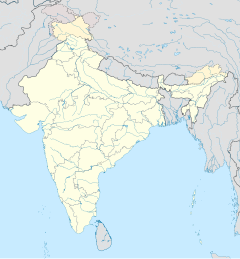Tihar Jail
| Location | Tihar Village, New Delhi, India |
|---|---|
| Coordinates | 28°37′03″N 77°06′02″E / 28.61750°N 77.10056°ECoordinates: 28°37′03″N 77°06′02″E / 28.61750°N 77.10056°E |
| Status | Operating |
| Security class | Maximum |
| Capacity | 6250 |
| Population | 10,533 (as of 31 December 2012) |
| Opened | 1957 |
| Managed by | Department of Delhi Prisons, Government of Delhi |
| Website | tiharprisons |
Tihar Prisons, also called Tihar Jail and Tihar Ashram, is a prison complex in India and the largest complex of prisons in South Asia. Run by Department of Delhi Prisons, Government of Delhi, the prison contains nine central prisons, and is one of the two prison complexes in Delhi, along with a district prison at Rohini Prison Complex. It is located in Tihar village, approximately 7 km from Chanakya Puri, to the west of New Delhi, India. The surrounding area is called Hari Nagar.
The prison is styled as a correctional institution. Its main objective is to convert its inmates into ordinary members of society by providing them with useful skills, education, and respect for the law. It aims to improve the inmates' self-esteem and strengthen their desire to improve. To engage, rehabilitate, and reform its inmates, Tihar uses music therapy, which involves music training sessions and concerts. The prison has its own radio station, run by inmates. There is also a prison industry within the walls, manned wholly by inmates, which bears the brand Tihar. As of December 2012[update], Tihar jail has 10,533 inmates against the sanctioned capacity of 5,200. Though the figure is down from around 12,000 in 2006, the prison remains seriously overcrowded.
Originally, Tihar was a maximum security prison run by the State of Punjab. In 1966 control was transferred to the National Capital Territory of Delhi. Beginning in 1984, additional facilities were constructed, and the complex became Tihar Prison.
Under the charge of Kiran Bedi, when she was Inspector General of Prisons, she instituted a number of prison reforms at Tihar, including changing its name to Tihar Ashram. She also instituted a Vipassana meditation program for both staff and inmates; initial classes were taught by S. N. Goenka. The Prison has also produced an inmate who has passed the Indian Administrative Service civil service examinations.
...
Wikipedia


